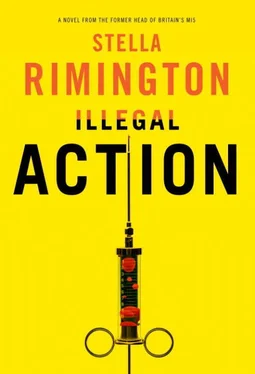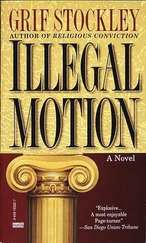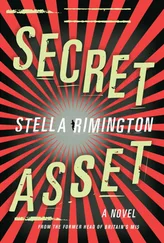“I’ll have to take this,” said Brian Ackers, picking up his purring phone. Liz had just finished relating the news of Marco Tutti’s background and his “discovery” that a second Pashko painting was available. Brian had seemed preoccupied, and listening to his end of the conversation now Liz realised there was an operation going on that she didn’t know anything about. The time she was spending at the Brunovsky house was putting her out of touch with developments in Counter-Espionage.
And for what? For all the anxiety about Victor Adler’s so-called plot, Brian didn’t seem particularly interested in what she had to tell him. She seemed to have been sent off down a sidetrack. Maybe it was a sidetrack leading to something important, but so far she’d seen no sign of it. Rykov’s recruitment of Jerry Simmons didn’t seem to disguise anything more than a clumsy attempt to keep tabs on an oligarch—if there’d been more to it, surely Simmons would have had more to tell Michael Fane. There was no indication that Rykov’s lunch with Ivanov, or indeed Ivanov’s visit to London, had anything to do with Brunovsky. It was true that Rykov’s sudden recall to Moscow, apparently under a cloud, was an unusual overreaction to Michael Fane’s clumsy surveillance operation. But maybe there was something else behind it.
Certainly the people surrounding Brunovsky were what her father would have called a “rum bunch,” but they were probably no rummer than any other billionaire’s entourage. There seemed nothing particularly threatening about them. All kings had their courts; all magnates had their sycophants and freeloaders. The only remarkable thing about the Belgravia household and its hangers-on was that Brunovsky himself couldn’t see that he was being exploited. Or maybe he could and didn’t care, thought Liz. After all, he had to have a life.
“Sorry about that,” said Brian, putting down the phone. “There’s been another approach to a government scientist by the Russians.”
“Someone from the embassy?”
He shook his head, and she noticed his eyes were bloodshot from a lack of sleep. “No. This time it’s a Russian scientist over here on an exchange. Always something new from our Moscow friends. Anyway, is there anything else you wanted to tell me? I need to get on to the Home Office.”
“Well,” she said, “what Tutti’s up to, as far as I can tell, is just a good old-fashioned scam. Why Brunovsky’s falling for it is beyond me—I’d have thought he’d spot it a mile away.”
“Yes, yes,” said Brian impatiently. “We all have our weaknesses. But your point is?”
“My point is, this is one for the police—don’t they have an Art and Antiquities Squad? It’s certainly not for us. Frankly, the only danger I can detect for Brunovsky is losing his shirt buying this fake picture.”
“Right then, let’s contact the Met and have them investigate this Tutti chap. Can I leave that to you?” He looked down with obvious impatience at some notes he’d made during his call.
“Of course,” she said, suppressing growing irritation. “I also think we should seriously consider pulling me out of there now. My job’s done. The only plot I’ve discovered is to bilk Brunovsky of his money, not that he can’t afford it. But there’s nothing I can see along the lines of Victor Adler’s story.”
“Yes, well let’s talk about this when I have a bit more time. I know Geoffrey Fane is keen for you to stay on there for the time being. If we do pull you out, I’ll need to discuss it with him and Pennington first.”
Really? Liz was aching to ask why. Since when did the FCO or Geoffrey Fane’s views determine what an MI5 officer should do? Yet from Brian’s peremptory manner it was clear he wasn’t going to spare the time for questions—in fact, he stood up, to show he didn’t want to talk about anything with Liz right now. She got the message.
The bells of Westminster Cathedral were ringing for evensong as the woman packed away her laptop and its small black companion in their bags. Moscow had agreed that Jane Falconer, or whatever her real name was, now presented a serious threat to the operation. She had made it obvious that she disbelieved the Italian’s discovery of a second painting. So far her scepticism did not seem to have affected anyone else. But it well might. The operation was on a knife-edge. Curse Brunovsky for inviting her into his household.
The woman knew she would be blamed for letting Falconer escape that night in Battersea. Those who had sent her here did not take failure lightly. They had no understanding of the difficulty of direct action against such a target in a London street, while being certain to escape unseen. But they had agreed that another attempt of that kind might well jeopardise the whole operation. Her task now was to remove the risk from Falconer and it had been left to her to do it in whatever way she thought best.
She was trained to work alone but now, aware of their criticism, she was feeling isolated. It was not her fault that Rykov had drawn attention to himself by unauthorised interference in areas he did not understand. As a result the messenger Ivanov had failed to make the meeting.
Her phone rang as she mused. The voice was fraught. “I need to see you right away. It’s urgent.”
“Keep calm,” she said coolly. “Tell me what’s happened.”
“Not on the phone.”
She sighed. Another stupid man. Italians were completely unreliable. If it rained when it was meant to be fair, if a train was twenty minutes late, if the sandwich bar ran out of prosciutto—hysteria ensued. Orderly people, the Germans or the Swiss, stayed calm over small mishaps. Citizens of chaotic nations (how many post-war Italian governments had there been?) were outraged that anyone else should replicate their own complete lack of organisation. “When can you meet?” she asked.
“Tonight. Come to my flat.”
She thought for a moment, assessing the risk. “Give me the address,” she said, and as he told her she memorised it instantly.
“Come at eight,” he ordered, seeming to forget in his near-hysteria that she held the whip hand.
“No,” she said bluntly. “I will be there at ten.” It would be best to arrive under cover of darkness.
He lived in a converted loft a few streets north of Oxford Street, in what was still known as the home of London’s rag trade, though many of the buildings now housed the offices of solicitors and estate agents. A few were being converted into flats, but on a weekday night at this hour, the neighbourhood was quiet, half-deserted.
She had taken a taxi to Tottenham Court Road, then walked the rest of the way, half a mile or so, knowing that she was far more likely to be remembered at the address by a cab driver who dropped her there than by anyone who simply passed her in the street. She was dressed in trainers, dark waterproof trousers with deep pockets and a jacket with the hood up, covering her hair and obscuring her face.
The entrance to his building was off a main thoroughfare, in a cobblestone alley empty of cars. She pressed the bell and looked around her. There was no one. The door buzzed; in the small bare hall there was nothing but a metal lift. Pressing the button for the top floor, she rose smoothly and silently up through the building. The door opened and he was standing there, holding a large, well-filled brandy balloon.
“Come in, come in,” he said and walked ahead of her into the vast converted loft. Large, colourful squares of stencilled fabric hung on the walls; the floorboards were waxed and buffed to a burnt-orange shine. In the middle of the floor square brick pillars, spaced at intervals, harked back to the days when the floor had been divided into small offices. Now the space was uncluttered—a large, sleek television screen hung flat against the wall. Two black leather chairs and a long sofa were grouped like modernist icons around a glass coffee table. Further back sat a dining area, with a grey slate table and steel chairs, and behind it a restaurant-sized cooking range, shining black wall-to-ceiling cupboards, and a fridge-freezer built deeply into the wall.
Читать дальше












